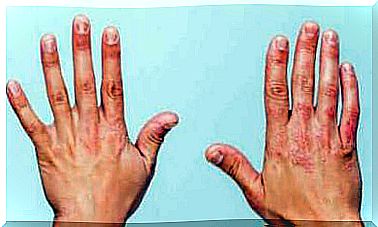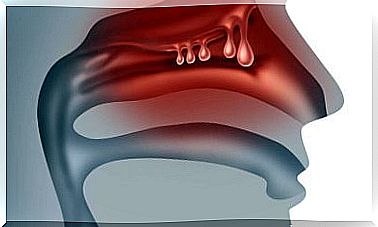6 Effects Of Psychological Abuse On Our Minds And Emotions You Should Know

The effects of physical abuse are easy to see and even to assess. Nobody can hide an injured arm, a black eye, a burn, a swollen lip, a punch to the skin… However, when we talk about the effects of psychological abuse, manipulation, abuse and emotional aggression, things change.
It is not possible to objectify, nor see with the naked eye, nor X-ray.
The complexity is such, such is the invisible impact it leaves, that the victim often feels incapable of asking for help.
It is not easy because, often, there are no adequate mechanisms for the woman or man who suffers these psychological abuse to take the step and dare to denounce their reality.
Sometimes they don’t dare. There is fear and fear of possible consequences. In particular, not being taken seriously.
Psychological abuse is devastating and shortens entire lives for a very concrete reason: it comes from people close to us, people we trust and people we often love.
Now let’s see what impact this dimension has on our minds and emotions.
1. Effects of psychological abuse: feelings of shame and guilt
If there is anything as disheartening as negative, it is to come to blame ourselves for everything that happens to us.
There is a very common aspect from which all those who see psychological manipulation from the outside derive.
We refer to the fact of thinking that “the person is mistreated because he lets himself be abused”, “that he is weak because he lets himself be destroyed, hurt and controlled”.
- You need to be careful with these types of expressions because the abused person is subjected to emotional chaos and a very complex situation that is not so easy to get out of.
It is common for them to feel ashamed of themselves when they think about how they got into this situation.
It is also common for them to feel unable to react, that they feel alone and isolated in order to be able to leave this personal abyss alone.
2. Effects of psychological abuse: memory loss or feeling of unreality
When we are subjected to a high level of anxiety, stress and constant suffering, it is common for brain structures such as the hippocampus, related to memory, to lose volume and connectivity.
- The person has memory failures, cannot concentrate or make decisions with a clear mind;
- On the other hand, the feeling of unreality is another very common factor.
It is a defense mechanism by which the mind sets a distance from reality to depersonalize it, to think that “this is not happening to me”.
3. Effects of psychological maltreatment: emotional instability, strong ups and downs
There are times when things are expected to change, everything can get better, and happiness, integrity and balance can be regained.
However, little by little, you reach the abyss and relapse. Frustration, anger, anger and, at the same time, despair and fear arise.
It is common to experience a complex kaleidoscope of sensations and emotions where the person is aware that he is not in control of his life.
4. Effects of psychological abuse: recurrent physical pain
The victim of psychological abuse is not physically attacked, but the suffering that sooner or later he experiences in his own body hurts just the same.
Chronic emotional discomfort ends up showing itself in such characteristic symptoms as tiredness, insomnia, headaches, muscle and joint pain, poor digestion, multiple infections contracted due to a weakened immune system…
It is, without a doubt, something very common.
5. Effects of psychological abuse: the feeling that “there is no way out”
Learned helplessness is another common symptom. The person who suffers from this type of abuse will come to think at a given moment that nothing he does will do any good.
- They often go so far as to tell themselves that no word, no action, or change they put in place will stop this abuse.
- This reminds us, once again, of the basic and essential importance of responding in a receptive and sensitive way to anyone who, in some way, is giving us hints that they are suffering from some form of abuse.
The moment we doubt or put out words like “what are you telling me?”, “are you sure he is doing this or are you the one who takes things too far?”…
The only thing we’ll get out of this is for the person to despair even more, pull away and experience the feeling of loneliness more intensely.
6. Effects of psychological abuse: suicidal thoughts
The moment a person tells himself that there is no way out, suicidal thoughts begin to arise. In the beginning it’s just sudden ideas, momentary desires.
However, the fateful moment may come when it sees itself as the only solution to the problem.
The environment must be very sensitive to all indicators, words, gestures, behaviors.
Because psychological abuse, beyond what we can think, leaves evident marks on people’s behavior.
Let us be aware of these realities and help those in need.









